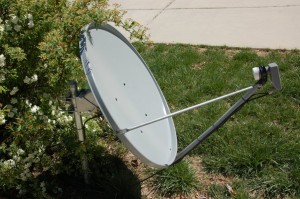I was searching through the MT.Net archives tonight, trying to find the name of the service that sorted blogs based on their location. Turns out I found it, or where it used to be, anyway: Local Feeds. It used GeoURL meta tags to mark your blog so that you could easily find blogs in your area. It was a pretty useful service when I first found it seven years ago.
Wow. That’s a long time.
Anyhow, Local Feeds is defunct now, which is a shame. The reason I love Facebook so much is because I like knowing what’s going on in the area. I check Twitter often, for the same reason. Problem with Twitter is that I don’t get enough depth from it. I guess the same applies to Facebook: there’s only so much that one can fit into a status update.
I would like to see someone revive the blog geotagging idea and provide folks with a location-based blog search. I think it would fill a gap that the status-update services just can’t provide. Anyone out there want to take this up?

